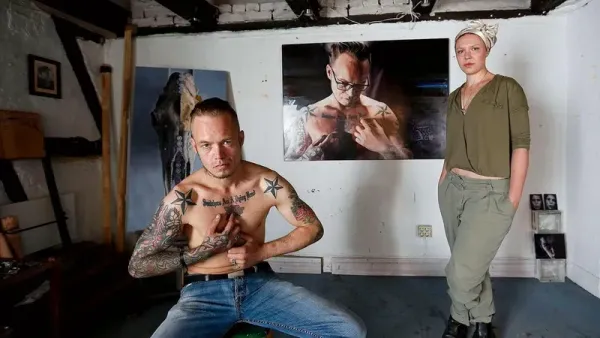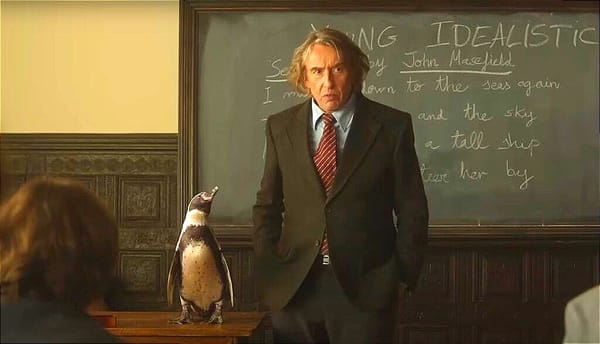Toronto Report, Part II
Coming soon to a theater near you: Spielberg gets personal, Swinton doubles down, and "The Son" traffics in trauma.
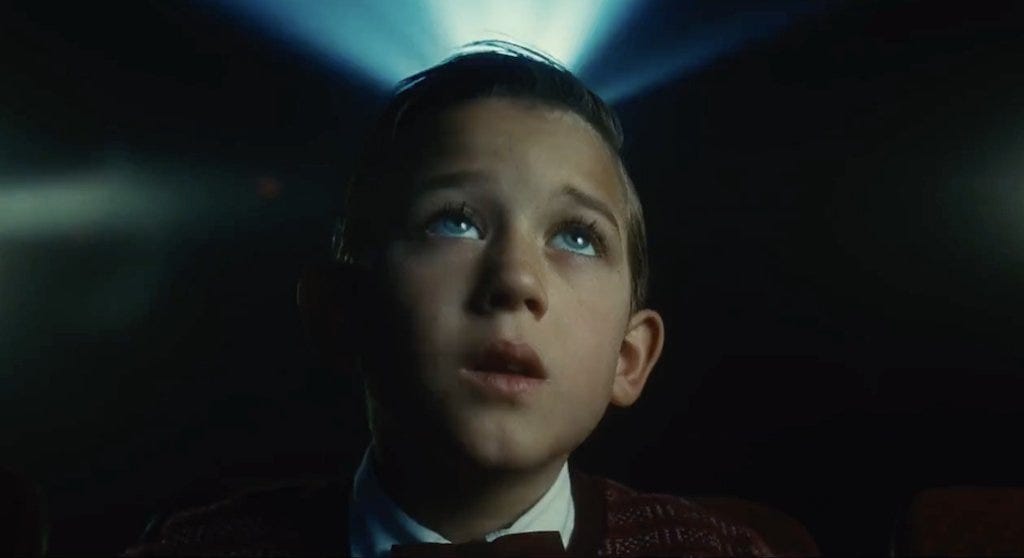
The most interesting movies on offer at this year’s Toronto International Film Festival – sometimes the best – have revolved around the agonies and ecstasies of family. “The Fabelmans” (in theaters November 23, *** stars out of ****) has been one of the hot ticket items due to the enduring bond audiences have with Steven Spielberg and on the anticipation that this would be his most autobiographical work to date. And, yes, it is a portrait of the artist as a young movie fanatic, seeded by a train crash in 1952’s “The Greatest Show On Earth” that little Sammy Fabelman (Mateo Francis-DeFord, above) recreates in his basement and flowering with an older Sammy (Gabriel LaBelle) creating ambitious 8mm war epics with his friends. More than that, “The Fabelmans” tracks the hero’s loss of innocence as he comes to see — and film — the fractures in his parents’ marriage, with a life-force mother (Michelle Williams) slowly wilting under the kindness and dullness of an engineer father (Paul Dano).
As always with Spielberg, “The Fabelmans” is an easy, pleasurable watch, the master of classical movie narrative spinning his tales with a verve that’s the cinematic equivalent of comfort food. That smoothness blunts the movie’s sharper edges, though, and as wise as the screenplay by Tony Kushner and Spielberg is, it can’t quite push the director into seeing his mother from any other vantage point than that of a loving grown child. Which is to say that Mitzi Fabelman – meaning Leah Spielberg – is a more mercurial and problematic figure than the movie seems willing to confront. The performances are fine – Dano as a man helplessly locked into seeing the wiring of things rather than the things themselves, Seth Rogen as a bluff family friend with hidden loyalties, Julia Butters of TV’s “American Housewife” and Tarantino’s “Once Upon a Time… in Hollywood” as Sammy’s sister (she gets one good scene and could have used more), and especially Williams, who suggests the real emotional distress beneath the surface of the movie’s Manic Pixie Dream Mom. Toward the end of “The Fabelmans,” there’s a close-up of Mitzi in which we suddenly see right into the depths of one woman’s entrapped grief, and I found myself choking back an unexpected sob.
By contrast, “The Son” (in theaters November 11, *1/2 stars out of ****) had me choking back anger, but only after eliciting a full-body response unwarranted by the movie that was triggering it. This is playwright-director Florian Zeller’s follow-up to his (justly) acclaimed “The Father” (2020) – not a sequel but a new story, told in straight-ahead fashion as opposed to the earlier movie’s harrowing mind games – and it stars Hugh Jackman as a high-powered Manhattan attorney helpless to stop his teenage son (Zen McGrath) from spiraling into suicidal despair. Laura Dern plays Jackman’s ex-wife and the boy’s mother, Vanessa Kirby is his new wife, and Anthony Hopkins puts in a brief appearance as an emotional iceberg of a patriarch; the script, which has been translated from the French by Christopher Hampton (who did the same for “The Father”) is earnest and florid, lacking in the mousetraps of the first movie. “The Son” looks like the very definition of a high-quality, Oscar-adjacent stage adaptation, but for anyone who’s had experience with adolescent depression, hospitalization, and/or suicide – as a child or as a parent – it plays as maddeningly glib reduction of lived experience, with blame parceled out like a punishment. And to what end? There are other, more insightful movies on the subject – “Ordinary People” (1980), for one; “The Perks of Being a Wallflower” (2012) for another. By comparison, “The Son” is an exercise in unearned catharsis, and a lot of moviegoers at TIFF came out feeling pissed.
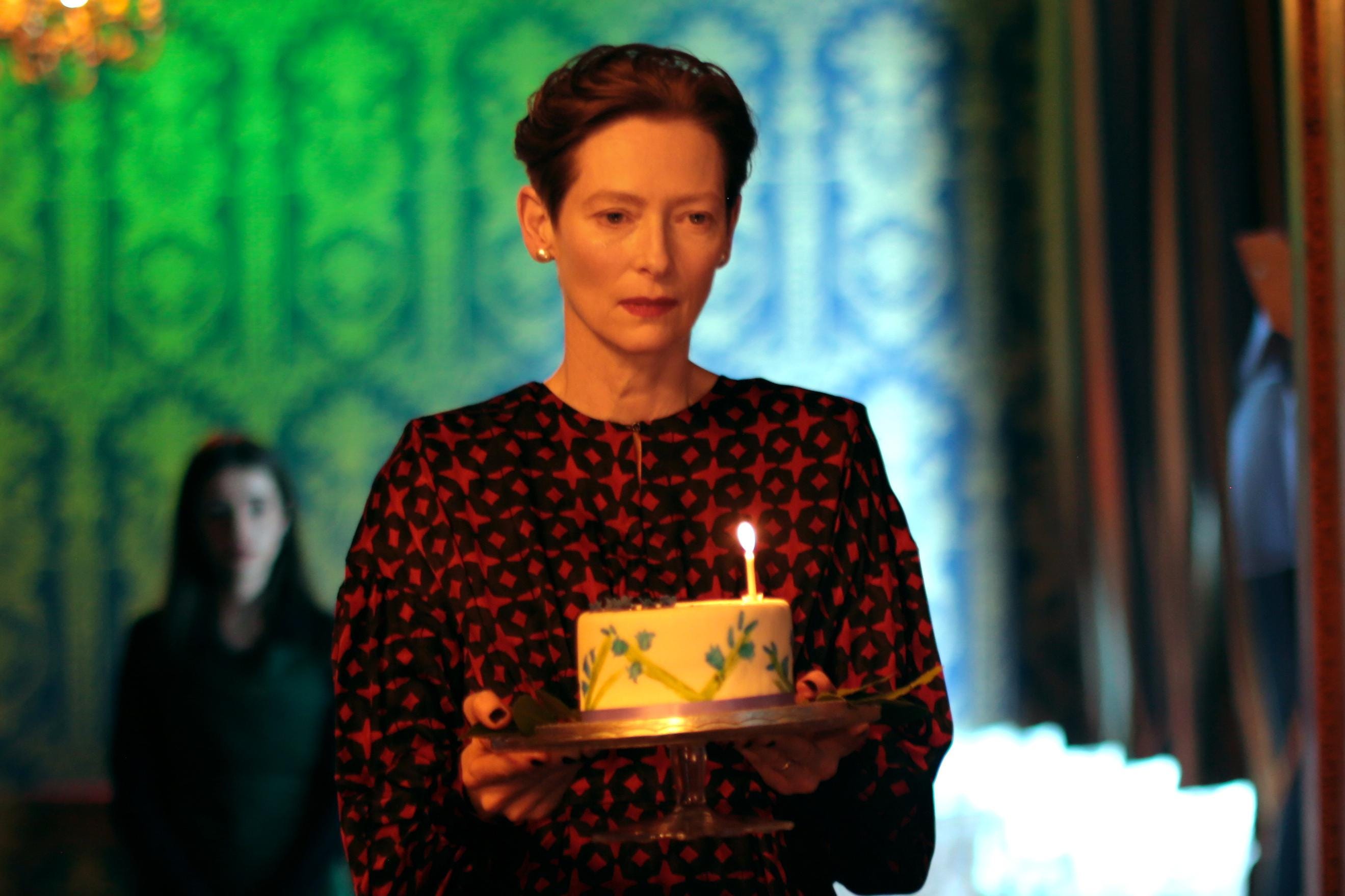
At least I had “The Eternal Daughter” (in theaters this fall, **** stars out of ****) under my belt already, and its gentle yet firm grappling with grief remains a balm. It’s the new one from British director Joanna Hogg, a spiky independent talent who mined a youthful love affair and its aftermath in “The Souvenir” (2019) and “The Souvenir Part II” (2021). In those films, Tilda Swinton played the heroine’s prim but loving mother in (to her own daughter, actress Honor Swinton Byrne), and here she’s cast as both a middle-aged version of Julia from “The Souvenir” – in other words, she’s standing in for Hogg herself – and as Julia’s aged mother Rosalind. The two are touring the English countrywide, visiting a hotel that was once the private home of the older woman’s aunt; Rosalind remembers being sent out from London as a child to stay there during World War II. Hogg consciously films the movie as a modern Gothic tale, wind whistling in the walls, doors creaking open, spectral figures glimpsed in the darkness beyond windows. “The Eternal Daughter” is a ghost story, but of what kind is a mystery we’re asked to solve. It’s not that tough – I twigged to a crucial twist early on which made the reveal seem a foregone conclusion, but the film is extremely tender in registering the affection between a mother and daughter, and there’s a penultimate shot that just about took my breath away. The movie’s a gift, to Hogg’s own late mother and to us.
One final family affair: “One Fine Morning” (in theaters this fall, *** stars out of ****), in which director Mia Hansen-Løve (“Bergman Island”) draws, like Hogg, on her own life and recent events. It’s a Paris-based story of Sandra (Leá Seydoux), a working single mother dealing with a stroppy little daughter (Camille Leban Martins), a new (married) boyfriend (Melvil Poupaud), and a beloved professor father (Pascal Greggory) suffering from a degenerative disease. A simple and quite affecting drama of daily life and the grace needed to meet it, and Seydoux plays her role with an aching emotional translucency. (The actress, below right with Hansen-Løve, also had one of the festival’s best post-screening Q&A ensembles, including a pair of boots that looked like they were on loan from the Terminator.)
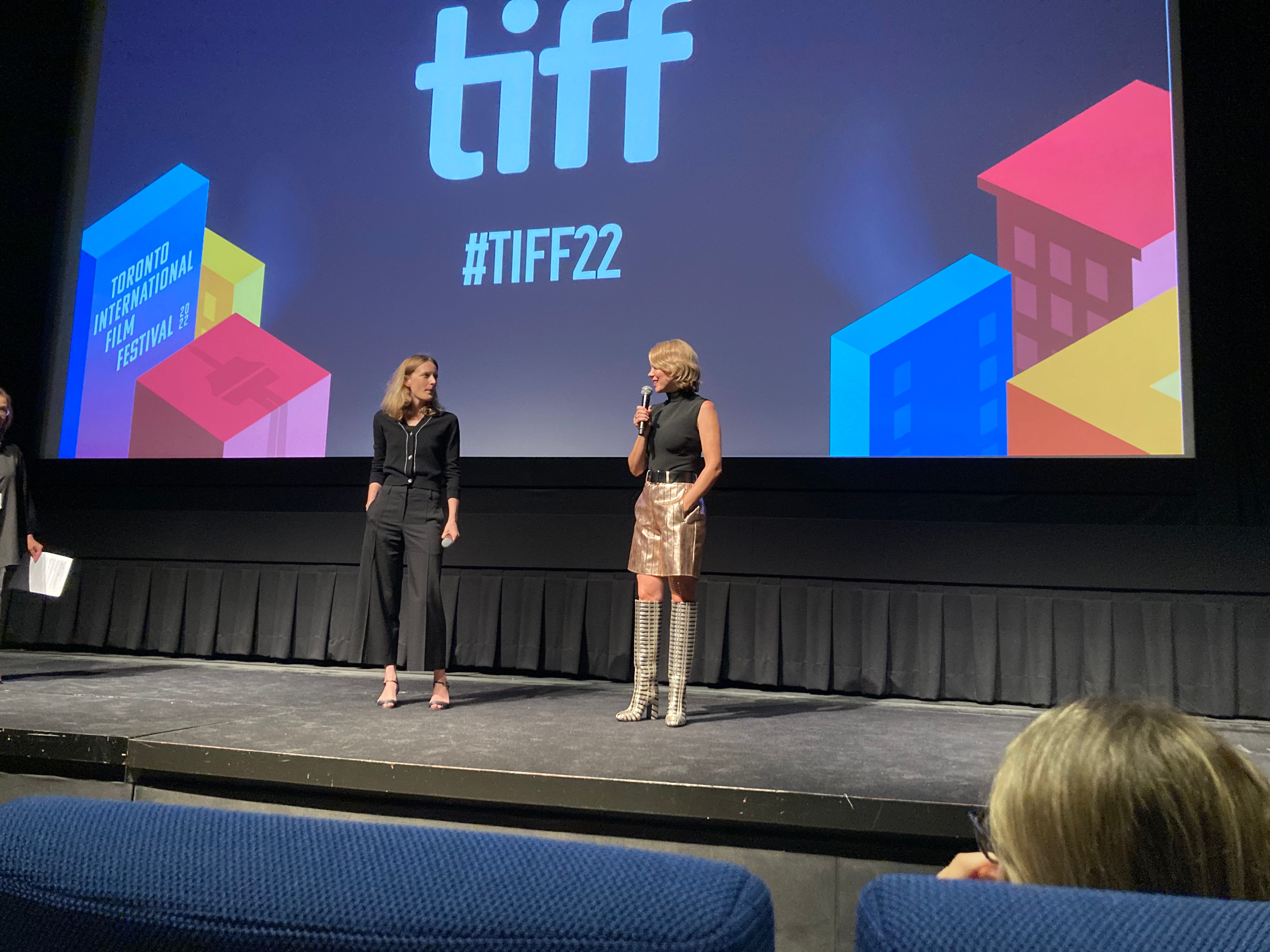
Other impressions from the festival blur:
“The Banshees of Inisherin” (in theaters October 21, **** stars out of ****) – A magnificent parable of human cussedness from writer-director Martin McDonagh (“Three Billboards Outside of Ebbing, Missouri”), set in the green, green isles of Aran off Ireland’s coast. McDonagh’s “In Bruges” stars Colin Farrell and Brendan Gleeson reunite for a tragicomedy that begins in Bartlebyesque spite – Gleeson’s Colm no longer wants to be friends with Farrell’s Pádraic for no reason other than vague boredom – and ascends to a pitch of near-Biblical comeuppance. Terrific performances and a crackling, acid-dipped script, with Kerry Condon a stealth MVP as Farrell’s long-suffering sister. Featuring one of TIFF’s two best performances by a donkey. (The other is Jerzy Skolimowski’s heartbreaking “Eo.”)
“Chevalier” (in theaters this fall, *1/2 stars out of ****) – Or: How to take a grand subject – the life and times of 18th-century Creole violinist-conductor-composer Joseph Bologne – and dumb it down into a strident, shallow melodrama pitched at the rear balcony. A surprising dud given the talent involved: star Kelvin Harrison Jr. (“Luce”), director Stephen Williams (“TV’s “Watchmen”), screenwriter Stefani Robinson (TV’s “Atlanta,” “What We Do in the Shadows”). Maybe the leap to the two-hour film format threw them, but this is a lot more simplistic than anything they’ve made for the small screen.
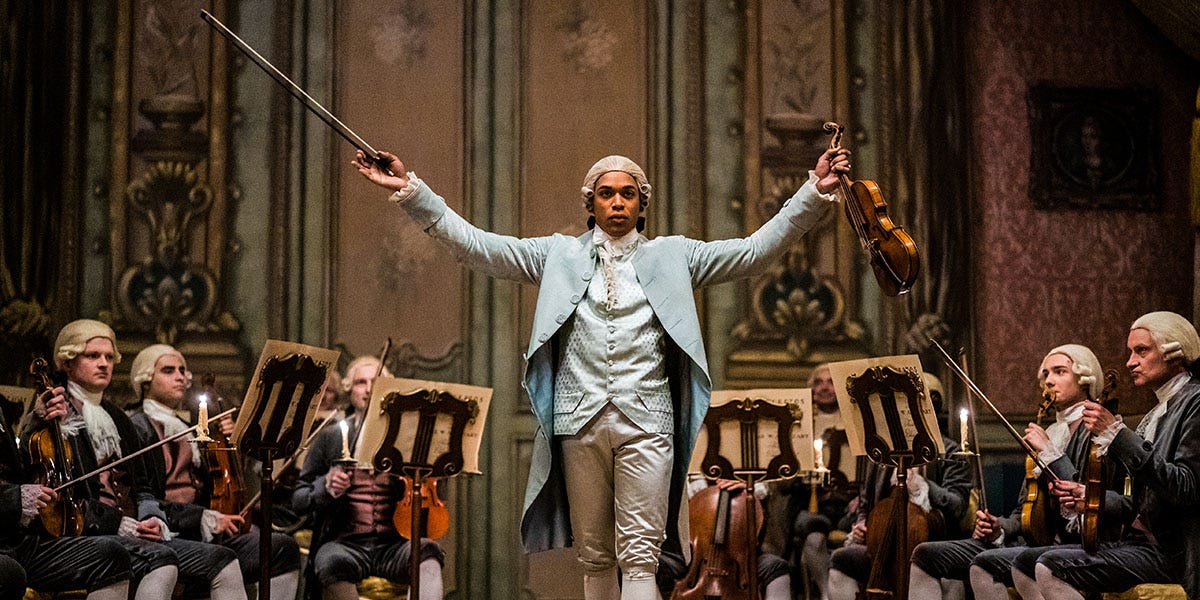
“Glass Onion: A Knives Out Mystery” (in theaters TBA and on Netflix December 23, *** stars out of ****) – The sequel to the grand 2017 murder-mystery comedy takes honey-baked detective Benoit Blanc (Daniel Craig) to a billionaire tech bro’s private island for a weekend of fun and death. The cast includes Edward Norton, Janelle Monáe, Kate Hudson, and Leslie Odom Jr., and they’re all having a high old time. So did I – the laughs are there, as are some of the more outrageous cameos in recent movie history – but I couldn’t help feeling that writer-director Rian Johnson and crew were trying too hard this time out. The first “Knives Out” remains a delight that repays return visits; “Glass Onion” is a very funny one-and-done.
“The Whale” (in theaters December 9, **1/2 stars out of ****) – The return of Brendan Fraser – a shaggy one-time movie star for whom people’s affection has only grown in the decades since his last starring role – and also the movie where he’s been cast as a 600-lb man. Adapted by Stephen D. Hunter from his play and directed by Darren Aronofsky (“Requiem for a Dream,” “Black Swan,” “Mother!”), a filmmaker who likes to put his characters and his audiences through the wringer, it pits Fraser’s sad, suicidal shut-in against a hostile teenage daughter (Sadie Sink), a young evangelical missionary (Ty Simpkins), and a longtime nurse who’s also an old friend (Hong Chau, who’s wonderful). It’s a grueling exercise that traffics in clichés about self-loathing fat people, but while the body padding transforming Fraser is a stunt, his performance certainly isn’t. The weight the actor carries isn’t physical but psychic – the crestfallen wisdom of having made it through the factory cogs of fame alive.
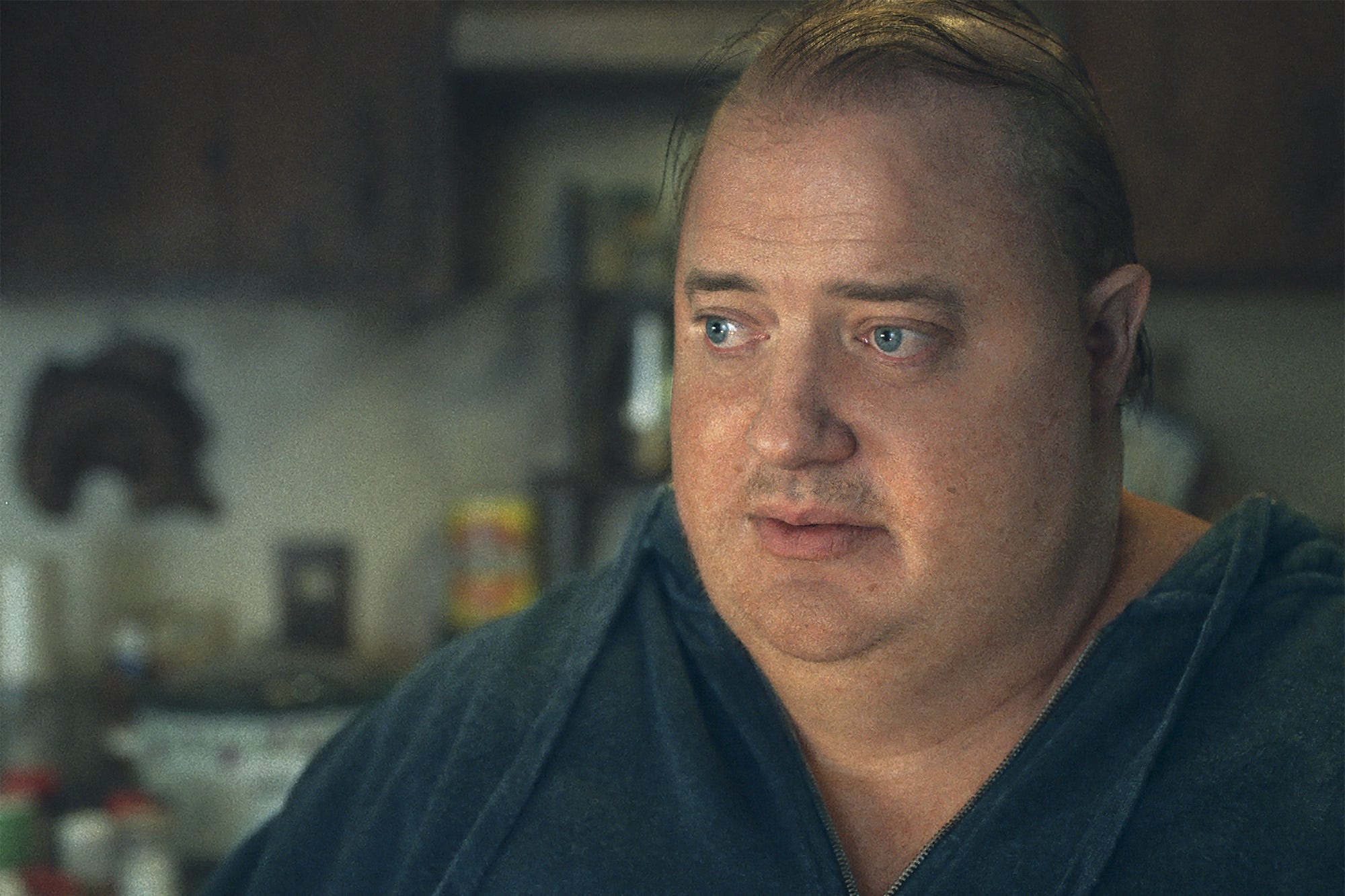
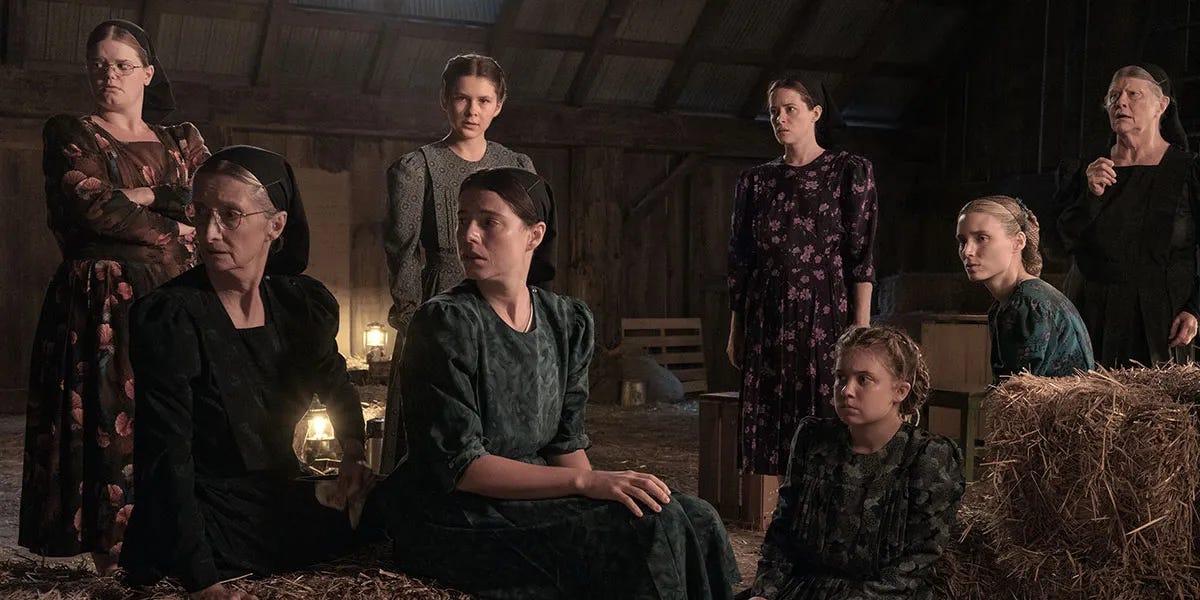
“Women Talking” (In theaters December 2, ***1/2 stars out of ****) – The return of Sarah Polley (“Away From Her,” “Stories We Tell”) to the director’s chair after a ten-year absence, this adapts Miriam Toew’s 2018 novel with a starry, committed cast: Rooney Mara, Jessie Buckley, Claire Foy, Sheila McCarthy, Judith Ivey, and more, including, in a small but crucial role, Frances McDormand. They play women of a Mennonite community riven by revelations of long-term sexual abuse (the novel was based on actual events), meeting in a barn to debate whether to leave or stay and fight. Think of it as Twelve Angry Women – Twelve Justifiably Furious Women – and marvel at the shades of vengefulness, hope, sorrow, and support on display in the gallery of performances. It's talky – you knew that by looking at the title – but Polley and the actors bring it to life with righteousness and boundless compassion. A lot of the TIFF films don’t have trailers yet, but here’s a video of the “Women Talking” post-premiere Q&A to give you flavor of this film and the festival surrounding it. (I’ve skipped the pre-screening introductory remarks.)
If you enjoyed this edition of Ty Burr’s Watch List, please feel free to share it with friends.
If you’re not a paying subscriber and would like to sign up for additional postings and to join the discussions, here’s how:



